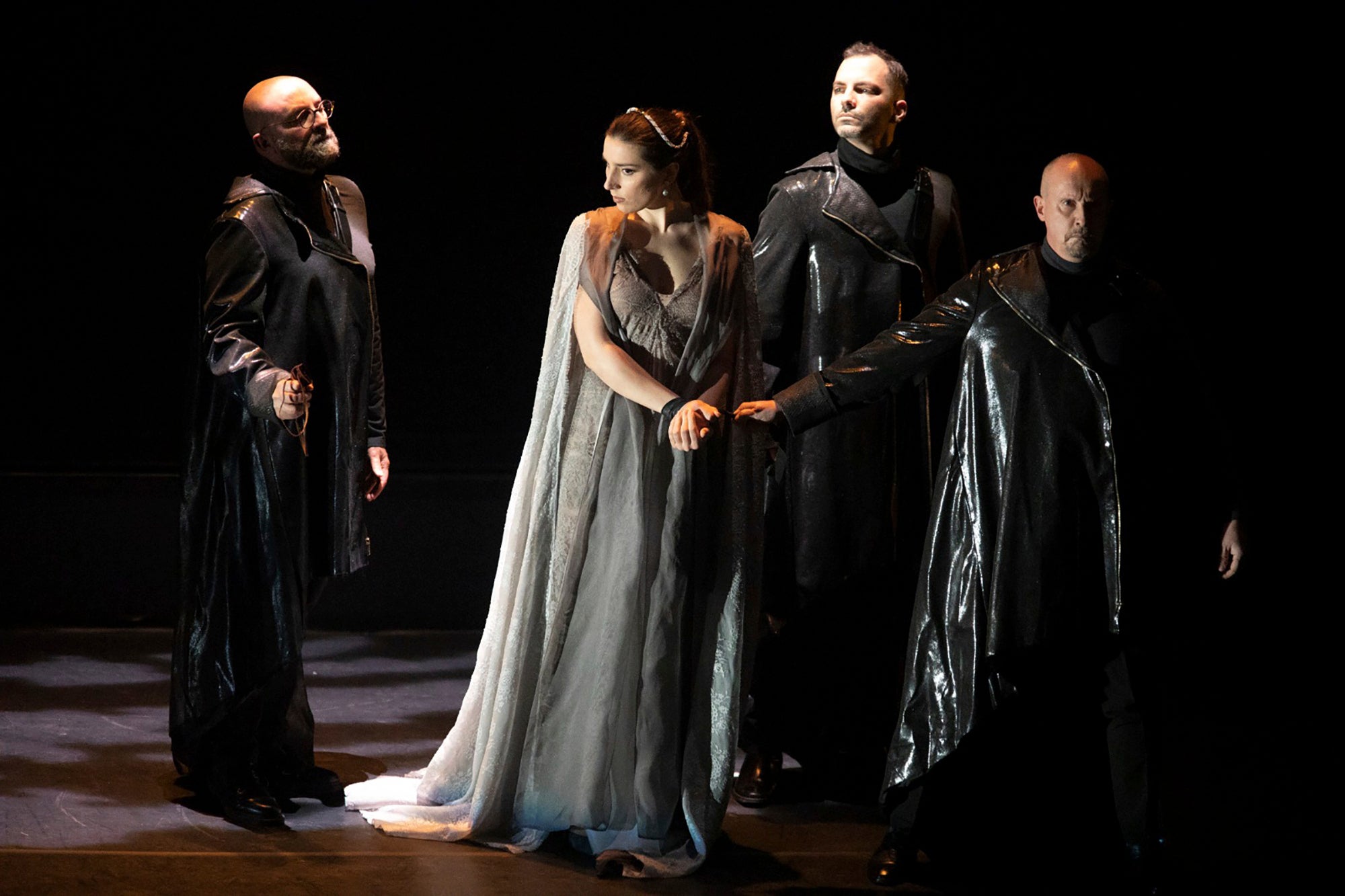Vivaldi opera gets premiere in Ferrara nearly 300 years late
The Catholic Church and the northern Italian city of Ferrara are making their peace with Antonio Vivaldi nearly 300 years after the city’s archbishop effectively canceled the staging of one of his operas

Your support helps us to tell the story
From reproductive rights to climate change to Big Tech, The Independent is on the ground when the story is developing. Whether it's investigating the financials of Elon Musk's pro-Trump PAC or producing our latest documentary, 'The A Word', which shines a light on the American women fighting for reproductive rights, we know how important it is to parse out the facts from the messaging.
At such a critical moment in US history, we need reporters on the ground. Your donation allows us to keep sending journalists to speak to both sides of the story.
The Independent is trusted by Americans across the entire political spectrum. And unlike many other quality news outlets, we choose not to lock Americans out of our reporting and analysis with paywalls. We believe quality journalism should be available to everyone, paid for by those who can afford it.
Your support makes all the difference.The Catholic Church and the northern Italian city of Ferrara are making their peace with Antonio Vivaldi nearly 300 years after the city’s archbishop effectively canceled the staging of one of his operas, sending the famed Baroque composer into debt for his final years in exile.
Ferrara Archbishop Giancarlo Perego is attending the opening Thursday of Vivaldi’s “Il Farnace” at the city's public theater, a decision hailed by the theater’s artistic director as a “marvelous gesture” that helps heal the past and highlight one of Vivaldi’s lesser-known works.
“We want to restore to Vivaldi what was taken from him here in Ferrara,” Marcello Corvino told The Associated Press ahead of the premiere of “Il Farnace,” which tells the story of the tragic dynasty of King Pharnaces II.
According to historians, when Cardinal Tommaso Ruffo banned Vivaldi from Ferrara, it effectively meant the cancellation of the scheduled 1739 Carnival production of his “Il Farnace,” which had already enjoyed success in Italy and beyond. Ruffo's reason? Vivaldi, an ordained Catholic priest, had stopped celebrating Mass and was said to be in a relationship with one of his singers, Anna Giro.
In reality, Vivaldi didn’t celebrate Mass because he had long suffered from respiratory problems, and his relationship with Giro was like that of any of a composer with his lead singer, Corvino said.
The cancellation proved financially disastrous for Vivaldi, Corvino said, since he had paid for the production himself ahead of time and was already experiencing a period of decline as his instrumental works had fallen out of favor.
Vivaldi went into debt and died in 1741 in Vienna. Only after his manuscripts were rediscovered did he earn posthumous fame for “The Four Seasons” and other concertos.
“It’s almost a vindication, a belated tribute that the city of Ferrara is offering Vivaldi,” said Federico Maria Sardelli, who is conducting the opera and wrote a book on Vivaldi’s decline, “L’Affare Vivaldi,” which chronicles his final years.
Sardelli says that after Cardinal Ruffo prohibited the Venetian composer from stepping foot in Ferrara, Vivaldi initially tried to score the production from afar, writing down explicit stage directions as well as expressive and interpretative notations that he normally would have given his singers in person.
Those notations remain in the manuscript prepared for the Ferrara production, which was never staged. Those notations provided guidance for the opera opening Thursday for a two-night run, Sardelli said in a promotional video.
“We have this treasure, this score, which is a mirror of Vivaldi’s process,” he said. “He wrote incredible things that no Baroque composer ever wrote in a score because they would say it in person. We have the fortune of having the voice of Vivaldi written down on this score.”